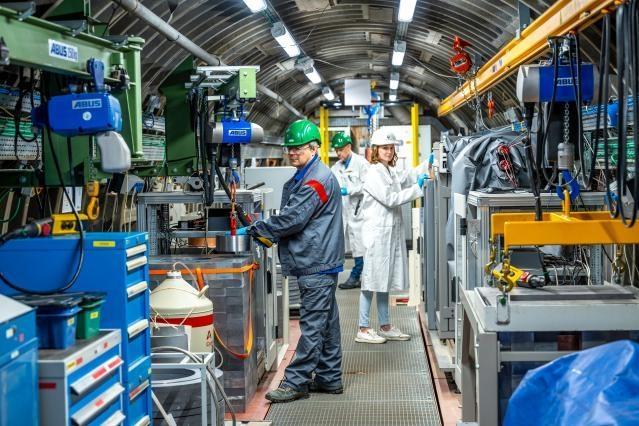Reliable measurements of α, β and γ radiation are of great importance for environmental monitoring, medical treatment and nuclear safeguards. The JRC's radionuclide metrology laboratories provide important nuclear decay data such as radionuclide half-lives and particle emission probabilities and energies. Furthermore, the JRC contributes to improved cross-section standards, e.g. for boron-10. The majority of measurements in neutron physics are performed relative to cross-section standards, and it therefore essential that these standards are continuously improved and their underlying physical mechanisms are understood. Such cross-section standards are also important for nuclear medicine, e.g. boron neutron capture therapy.
The JRC is specialised in accurate radioactivity measurements and develops and improves techniques for measuring the contents of radioactive substances in various materials, from very low to high radioactivity. As a signatory to the Mutual Recognition Arrangement under the auspices of the Comité international des Poids et Mesures (CIPM), the JRC participates and also organises key comparisons for the establishment of international equivalence of radioactivity standards.
The JRC's work in radionuclide metrology aims at solving problems in primary radioactivity standardisation and measuring and evaluating radioactive decay data of radionuclides of importance in nuclear safety, waste management and decommissioning, and nuclear medicine. Examples include improved α-particle emission probabilities and energies obtained by high-resolution spectrometry, half-lives of γ-ray and X-ray emitting radionuclides and half-lives of extremely long-lived radionuclides by absolute counting, mass spectrometry or underground γ-ray spectrometry.
For low background measurements, the JRC operates an underground laboratory. Underground measurements of radioactivity benefit from the reduction of the cosmic ray flux, thereby significantly reducing background signals. For example, the JRC has measured samples from Hiroshima, enabling the refinement of dosimetry models and improving the understanding of radiation effects on humans.
In the field of neutron standards, the JRC is the only European laboratory capable of providing cross-section data over the complete neutron energy range from a few meV up to about 20 MeV with the required accuracy.

